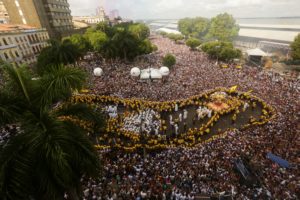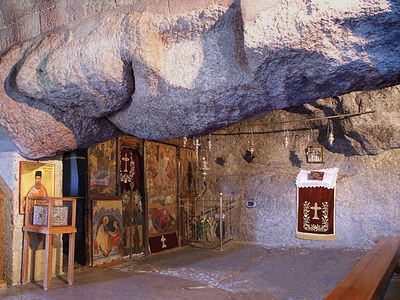 Revelation: Removing the VeilThis revelation was given by God to the Apostle John because we needed to know it.
Revelation: Removing the VeilThis revelation was given by God to the Apostle John because we needed to know it.
“>Part 1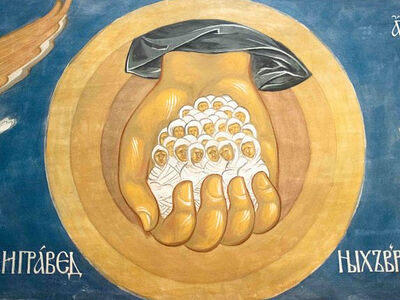 If Christ Is With Us, Death Is DefeatedThe book of Revelation teaches us a lot, especially when we begin to carefully delve into its words, when we see how Christ holds the world in His hands and acts with wisdom in all things.”>Part 2
If Christ Is With Us, Death Is DefeatedThe book of Revelation teaches us a lot, especially when we begin to carefully delve into its words, when we see how Christ holds the world in His hands and acts with wisdom in all things.”>Part 2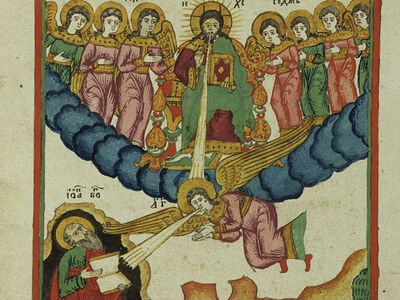 Why Did the Lord Leave Man the Book of Revelation?Only the people of God, the saints, can receive revelations from God, and only they can interpret them, because a revelation, words from God, is given from God, from the Holy Spirit.”>Part 3
Why Did the Lord Leave Man the Book of Revelation?Only the people of God, the saints, can receive revelations from God, and only they can interpret them, because a revelation, words from God, is given from God, from the Holy Spirit.”>Part 3
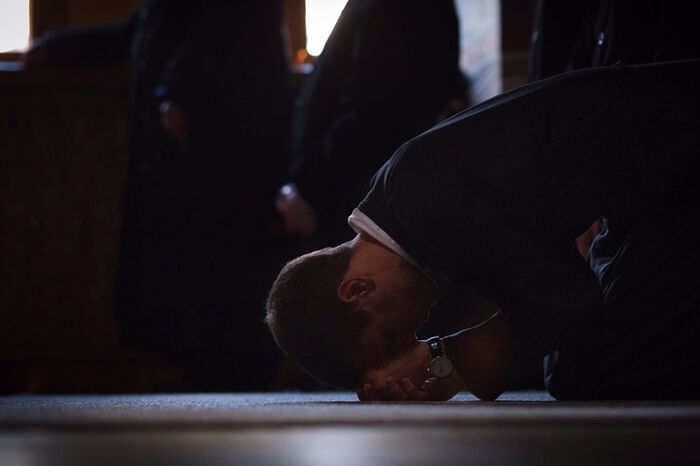
In matters of faith that are transmitted to us through the word of God, through Holy Scripture, we can be absolutely firm. God says it, the Gospel says it, Christ says it—we don’t discuss it. Thou shalt love the Lord thy God (Mk. 12:30)—it’s not me saying it, it’s God. I can be mistaken in my words; you can argue with me. I’m a human being, and it’s highly likely that I make mistakes. We all have to accept that we make mistakes—in ourselves and in others. Don’t be so surprised when someone makes mistakes. There’s nothing surprising about this. Human nature is imperfect, so it’s characteristic of it to make mistakes, sin, and have flaws.
True servants of God can be recognized by humility (the seal of truth is humility), by purity of heart. Then man accepts what God says, he receives Divine revelation with a pure and humble heart. God gave a revelation to Jesus Christ to show His servants what would happen soon. Someone might say: “So, all this is going to happen. And why do we need to know that this is going to happen? How are we to counter this? Tomorrow may come the day when they start giving people the seal of the antichrist, the number 666, and whoever doesn’t have this seal won’t be able to do anything—neither buy, nor sell, nor move, and so on. In any case, it’s going to start. And what are we supposed to do? Fight? Resist?”
All of this will happen, but we mustn’t bow our heads and be like a lamb to the slaughter (Is. 53:7); we shouldn’t accept all of this carelessly. We’re all responsible for ourselves. It’s important for us to keep our conscience, not to accept what isn’t good according to the teaching of the Holy Gospel, of Holy Scripture. The fact that this will inevitably happen doesn’t mean we have to just accept it all.
And it certainly doesn’t mean that those who take action are instruments in the hands of God, as, for example, in times of persecution. There were persecutions in the first centuries of the Church: Christians were persecuted, millions of people were tortured during the first three centuries. Nero killed thousands of Christians. But the fact that he destroyed so many Christians and Paradise was filled with saints doesn’t at all mean that Nero was an instrument of God’s providence and he’ll also go to Paradise. No. He was able to fill Paradise with martyrs, but he himself will go to hell for killing them. Those who do the works of satan, evil deeds, works that are not of God, are not justified by the fact that they serve for the salvation of others, participating in the providence of God.
Many people say about Judas: “What’s Judas to blame for? After all, it was foretold that Christ would be betrayed. He served God’s plan exactly. What’s this poor man guilty of?” But that’s not how it is. Judas didn’t do this because it was planned. It doesn’t mean this prophecy was recorded many years ago and therefore it must be fulfilled; rather it’s written because he betrayed. It was foretold. Prophecies are given because certain events will happen, but not the other way around; If there’s a prophecy, then it must come to pass. And those who contribute and commit what was foretold bear full responsibility for their actions. Those people who will destroy the universe tomorrow and bring this world to an end will be responsible for it. It can’t be said that they fulfilled God’s plan. You’re responsible for the crimes and the evil you commit. And prophets simply foresaw it.
I want you to understand this subtlety regarding the prophecies of God. God doesn’t determine what will happen; but rather, because it will happen, God foretells it to prevent people from following after it, and to protect them. Christ tried to stop Judas many times, as we know from the Gospel, so he wouldn’t commit this evil, but Judas wanted to do it. He’s responsible for this and for how he ended his life.
Thus, the words, which must shortly come to pass (Rev. 1:1) mean that this will happen, and thus it’s being written about. But those who will take part and commit this evil will bear full responsibility.
“Shortly”—what does that mean? Everything will happen in a day? We have to understand that God acts outside of time, and the events of Revelation don’t relate only to the end times. It describes events that had already happened when they were described by the holy Apostle John, and those that will happen later. The Church has always lived by the expectation of the resurrection from the dead, of the last day. We will read: Come, Lord Jesus! (Rev. 22:20). The Church lives by the expectation of the Coming of Christ, the expectation of the coming of the Kingdom of God. Thy Kingdom come (Lk. 11:2), we say in our prayers. We ask for the Kingdom of God both within our hearts and in general. Every person in the Church is waiting for the coming of the Kingdom of God. It’s not known when this will happen. And no matter how hard we try to figure out the deadlines, it won’t work—God will never tell us, because he doesn’t act out of human curiosity, but in a completely different way.
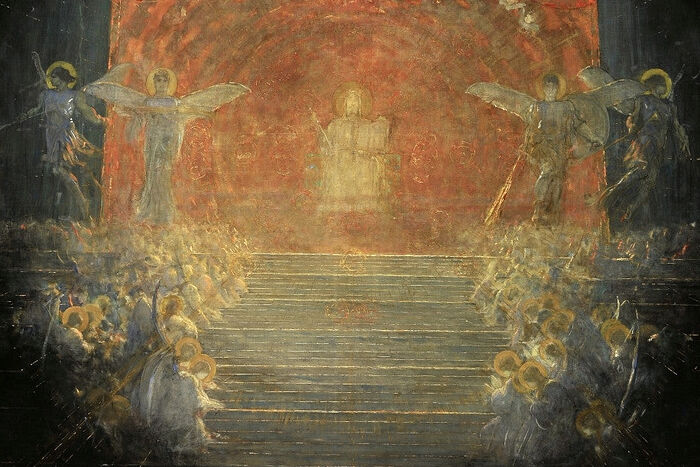 Behold the Bridegroom Cometh by Nikolaos Gyzis, 1899
Behold the Bridegroom Cometh by Nikolaos Gyzis, 1899
He signified it by His angel unto His servant John (Rev. 1:1). God showed all this to the servant of God John through an angel. John was a faithful servant of God—humble, pure, blameless, possessing everything necessary for a man to receive a Divine revelation. Who bare record of the word of God, and of the testimony of Jesus Christ, and of all things that he saw (Rev. 1:2). The Apostle and Evangelist John testified to what he saw, what he felt, what he experienced together with Christ and about the word of God.
And then he says: Blessed is he that readeth, and they that hear the words of this prophecy, and keep those things which are written therein: for the time is at hand (Rev. 1:3). That means Revelation was written for people to read it. Blessed is he that readeth. Blessed and happy are those who read and study the book of Revelation and Sacred Scripture, and those who listen to the teaching, the interpretation of the word of this prophecy. Therefore, there’s nothing bad about reading the words of prophecy. It’s enough that this is done correctly: in the spirit of humility and the teaching, according to the interpretations of the Holy Fathers of our Church, with the sole purpose of observing what’s written there. We shouldn’t read in order to satisfy our curiosity, like people who love to read horoscopes to know what they should do today and tomorrow. Some, often serious, people can’t live unless they read their horoscope. It’s interesting that different newspapers write different horoscopes and they don’t agree with each other, so you have to choose which one to read. Nonsense!
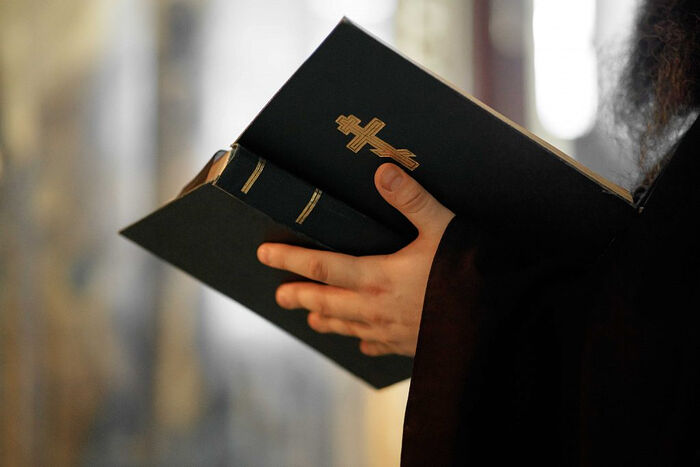
For the time is at hand. You might say: “Father, it’s been 2,000 years already and the end hasn’t come.” Indeed, it hasn’t come yet. There could be another 2,000 years and it doesn’t come. But, it’s absolutely certain that the end will come. In 5, 10, 100,000 years, it will come. There’s no doubt about it. You might not live till that time, but there will come the hour when you leave this world. Therefore, it’s important to read and keep what’s written in Revelation, not because you will necessarily personally witness that day. Some will live to see and meet the antichrist and see everything written there. But we, who probably won’t be alive in those times, must experience different events every day, recognizing those that are of the antichrist spirit, which come from breaking the commandments and from sins, from renouncing God. There are many events going on around us that challenge us and incite us to break the commandments of God.
When we come to the end of our lives, to our biological end, we’ll find ourselves before the face of everything we’ve done and thought. Our life, whether we want it to or not, unfortunately (or maybe fortunately) has its limit, its end. And one day it will come. Sometimes it comes early, sometimes later, but either way, it will come. For the time is at hand. One can argue that we won’t live to see the antichrist, but the hour of our departure from this world will come, when we will stand before God and see what we have done and not done. We mustn’t live in fear and oppression. Revelation and the Gospel weren’t written to intimidate us or force us to believe in God out of fear. It’s wrong to believe in God because you’re afraid. They were written so we would love God, believe in Him for real, with love; because we see there how God loves the world, that He has prepared for us to live with Him in eternity. God calls us to the Eternal Kingdom and to the eternal coming of His love.
To be continued…
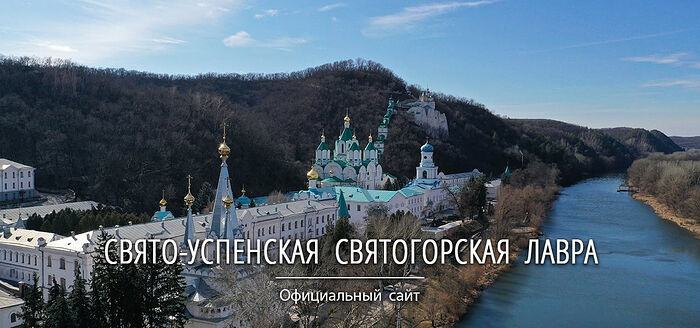
 Ukraine’s Svyatogorsk Lavra given stavropegial status under Metropolitan Onuphry of KievDespite being physically located on the territory of the Donetsk Diocese, the Holy Dormition-Svyatogorsk Lavra is now a stavropegial institution, directly under the episcopal authority of His Beatitude Metropolitan Onuphry of Kiev and All Ukraine.
Ukraine’s Svyatogorsk Lavra given stavropegial status under Metropolitan Onuphry of KievDespite being physically located on the territory of the Donetsk Diocese, the Holy Dormition-Svyatogorsk Lavra is now a stavropegial institution, directly under the episcopal authority of His Beatitude Metropolitan Onuphry of Kiev and All Ukraine.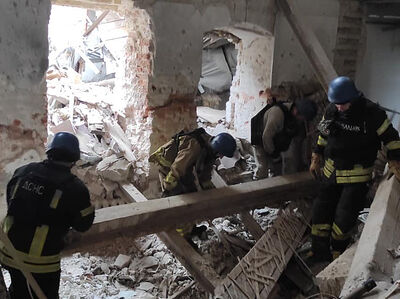 Bodies of refugees found under rubble at Ukraine’s much-suffering Svyatogorsk LavraTheir bodies were sent to the nearby city of Kramatorsk for a forensic medical examination.
Bodies of refugees found under rubble at Ukraine’s much-suffering Svyatogorsk LavraTheir bodies were sent to the nearby city of Kramatorsk for a forensic medical examination.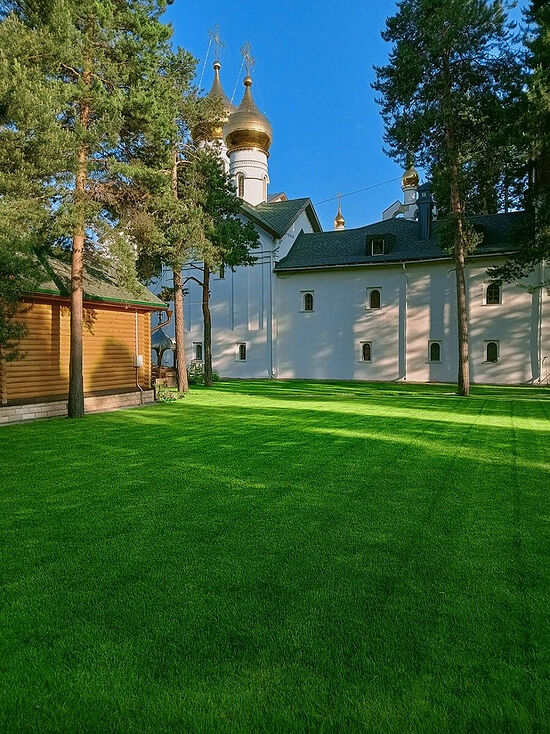
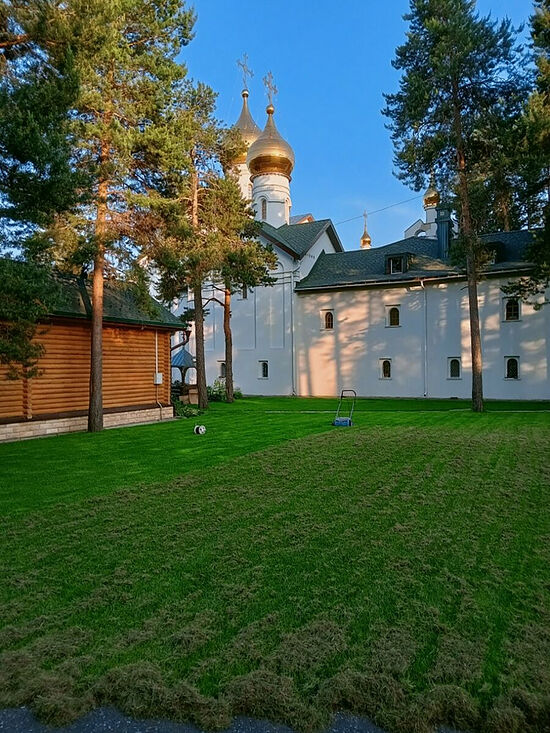
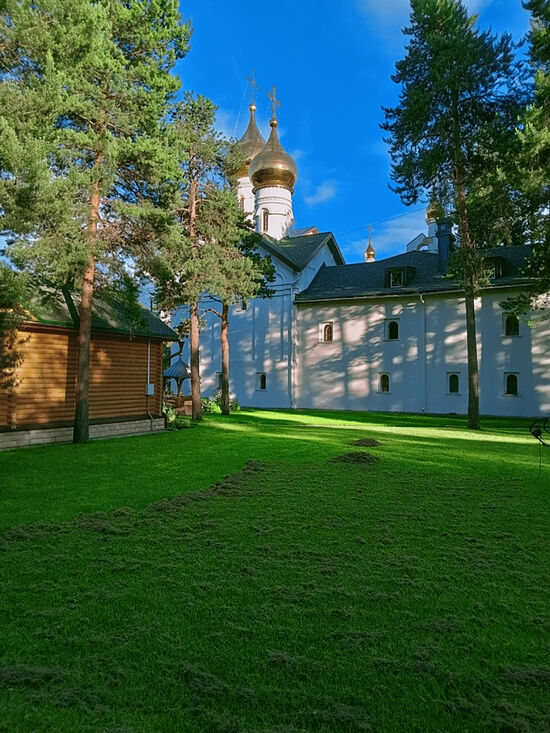
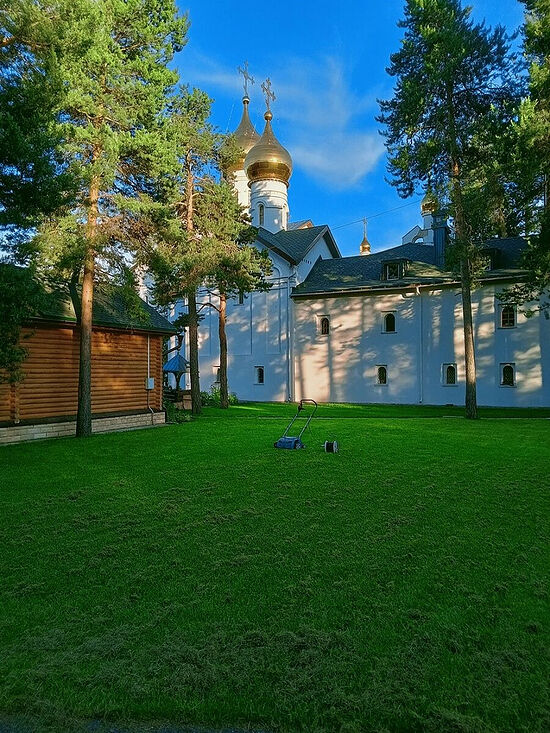
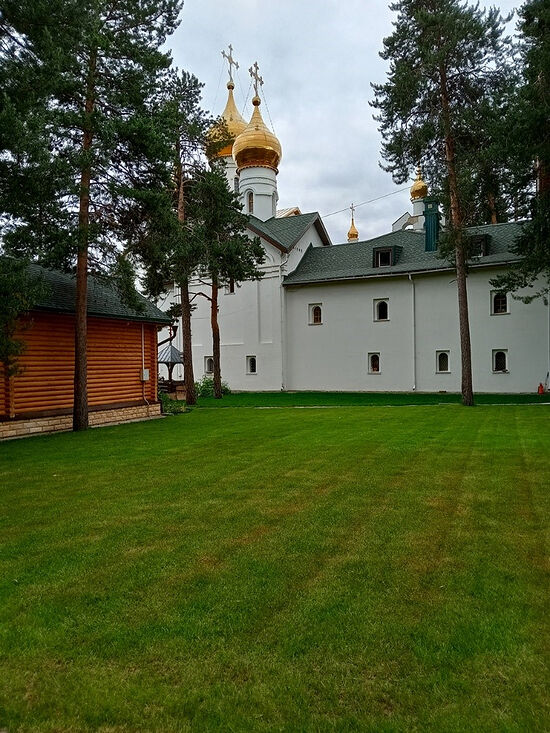
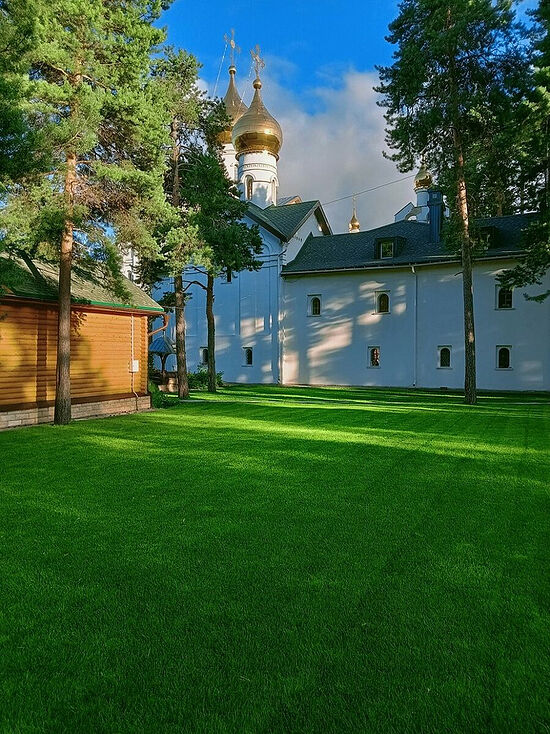

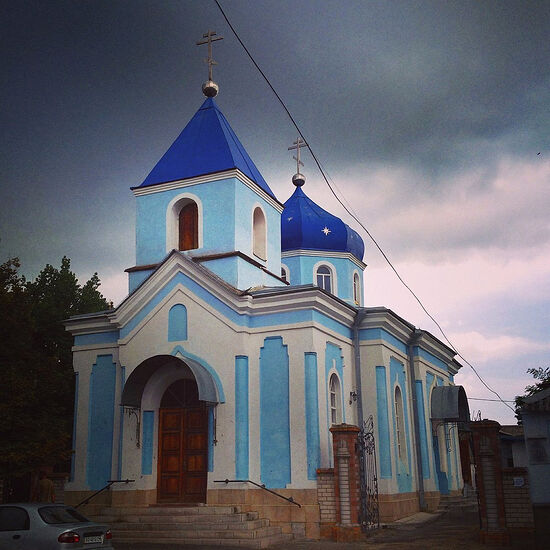
 Russian Synod establishes new diocese for parishes from UOC’s Kherson DioceseGathered under the chairmanship of His Holiness Patriarch Kirill yesterday, the Holy Synod of the Russian Orthodox Church resolved to establish a new diocese for parishes on the left bank of the Dnieper River in the Ukrainian Orthodox Church’s Kherson Diocese.
Russian Synod establishes new diocese for parishes from UOC’s Kherson DioceseGathered under the chairmanship of His Holiness Patriarch Kirill yesterday, the Holy Synod of the Russian Orthodox Church resolved to establish a new diocese for parishes on the left bank of the Dnieper River in the Ukrainian Orthodox Church’s Kherson Diocese.